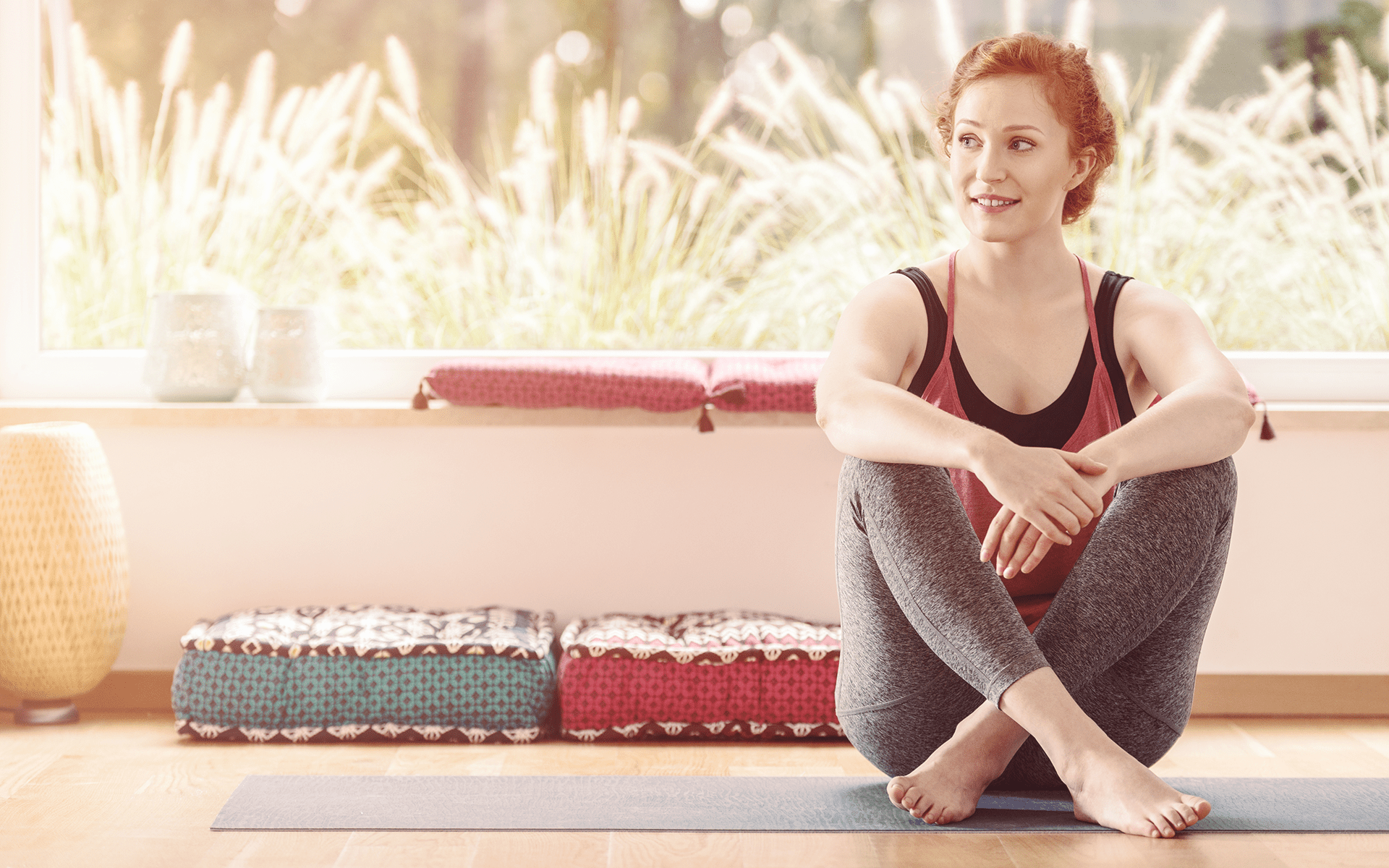One of the oldest meditation practices is also one of the simplest: Sit, and know you’re sitting. Let’s give this simple breathing practice for awareness a try:
1. Get comfortable, with your back straight. Close your eyes and relax. Gently move your attention away from what you’re thinking to the sensations in your forehead and around your eyes. Soften and let go of any tension. Smile a little and soften your jaw. Let your shoulders feel heavy and drop away from your neck. Relax your upper arms, your lower arms, your hands, your fingers.
2. Relax into your breath. Place one hand over your heart. Let your shoulders drop even more. Feel your breath move your hand up, then down, up down, up down. Now move your hand to your belly, soften, let go and relax. Breathing in, know you’re breathing in. Breathing out, know you’re breathing out. Let your hands rest easy on your lap and let go of any tension in your upper legs. Soften your knees, soften your lower legs, let your feet feel heavy and sink into the ground.
3. Notice the feeling of breathing. Notice how your body feels as you relax and drop. The part of your mind that is noticing—that’s awareness. It’s nothing special. You don’t need to look for it. You don’t need to do anything at all. Awareness is always here. Settle in and stay with your breathing for a few moments. Trust that your breath will find a natural rhythm. Trust that awareness is always here. Breathing in, know you’re breathing in. Breathing out, know you’re breathing out.
The part of your mind that is noticing—that’s awareness.
4. If your mind gets busy, don’t worry, that’s what it’s designed to do. To steady your attention silently, say “in” when you breathe in, silently say “out” when you breathe out. Thoughts, images, and sensations, they’ll come and go. The goal is to notice them without thinking about them. Don’t try to stop them. Don’t try to make them go away. Don’t try to change them, they’ll change on their own. No need to reflect on them now. There’s plenty of time to do that later. No need to add anything to your experience in this breathing practice for awareness. Just stay with it, when sounds appear, hear them, when sensations appear, feel them, when thoughts and images come to mind, notice them. That’s how we sit and know we’re sitting.
5. Watch what’s happening in your mind and body the way you’d watch a movie or a TV show. The storyline will twist and turn, threads of the plot will pass by, something new will emerge. You don’t need to look for this show, just settle in, relax, and it will come to you. Notice how those thoughts and sensations and images, they don’t have much heft, like the plot in a movie there’s no real substance to them. Nothing substantial to dig into or to hook onto, nothing to shut down, to push away, or to change.
6. You don’t need to do anything at all. Let go and settle back, relax your mind, smile a little bit, sit and know you’re sitting. Before we close, take a moment to notice the ever-changing, always connected web of causes and conditions that lead to this and every single moment. If someone comes to mind who has been helpful, silently say thanks.
Never Miss a Meditation
Enter your email below to get new podcast episodes delivered straight to your inbox! You’ll also get insights from expert mindfulness teachers and exclusive deals on Mindful Shop products, events, and more.






